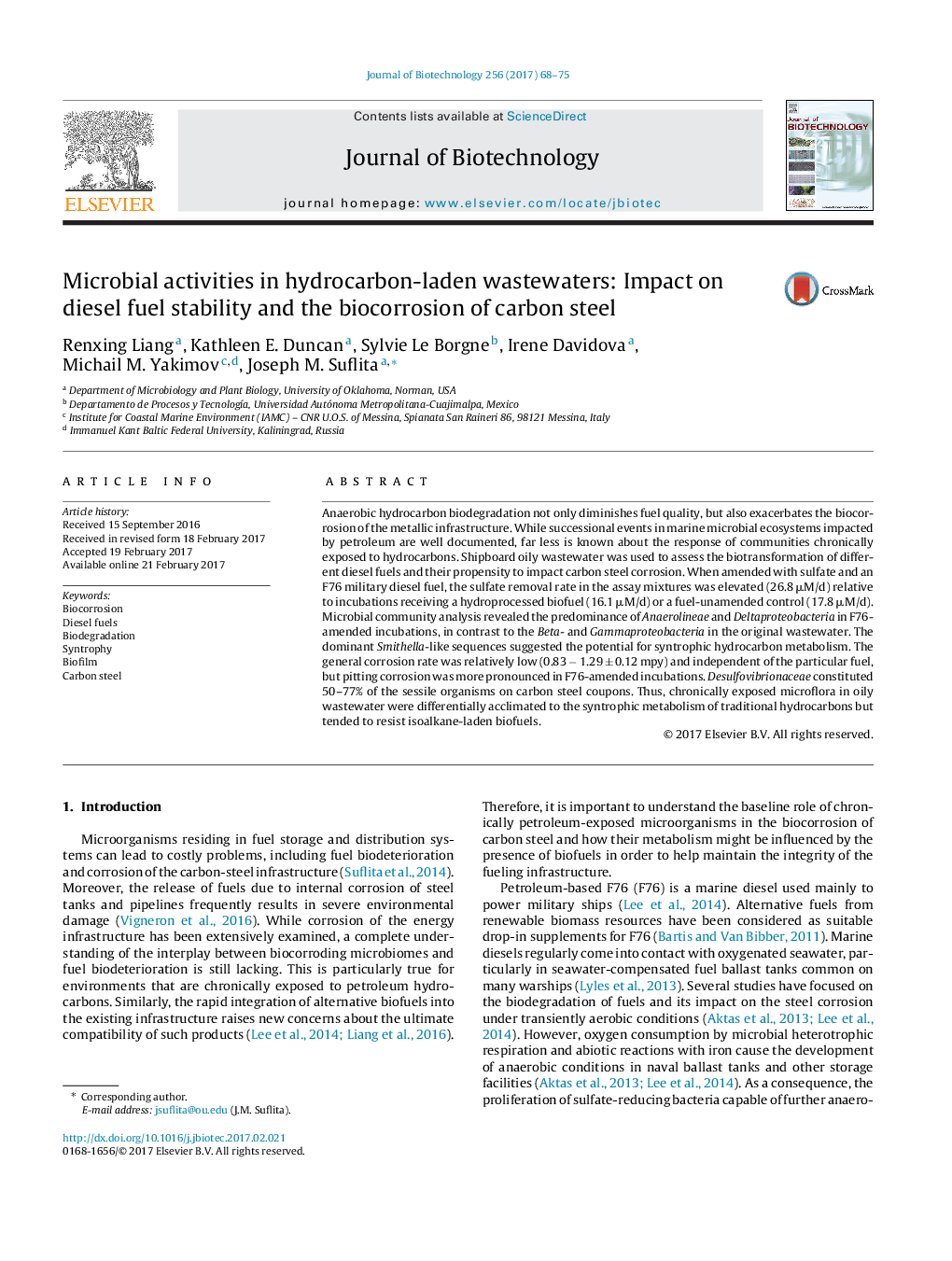| کد مقاله | کد نشریه | سال انتشار | مقاله انگلیسی | نسخه تمام متن |
|---|---|---|---|---|
| 4753517 | 1416987 | 2017 | 8 صفحه PDF | دانلود رایگان |
- The chemistry and microbial community of shipboard oily wastewater exposed to petroleum hydrocarbons was characterized.
- The role of the indigenous microflora in the biodegradation of fuel and biocorrosion of metal was determined.
- The planktonic and sessile microbial communities involved in fuel biodegradation and steel biocorrosion were contrasted Successional processes in chronically hydrocarbon-exposed microbial communities differed from newly oil-polluted ones.
Anaerobic hydrocarbon biodegradation not only diminishes fuel quality, but also exacerbates the biocorrosion of the metallic infrastructure. While successional events in marine microbial ecosystems impacted by petroleum are well documented, far less is known about the response of communities chronically exposed to hydrocarbons. Shipboard oily wastewater was used to assess the biotransformation of different diesel fuels and their propensity to impact carbon steel corrosion. When amended with sulfate and an F76 military diesel fuel, the sulfate removal rate in the assay mixtures was elevated (26.8 μM/d) relative to incubations receiving a hydroprocessed biofuel (16.1 μM/d) or a fuel-unamended control (17.8 μM/d). Microbial community analysis revealed the predominance of Anaerolineae and Deltaproteobacteria in F76-amended incubations, in contrast to the Beta- and Gammaproteobacteria in the original wastewater. The dominant Smithella-like sequences suggested the potential for syntrophic hydrocarbon metabolism. The general corrosion rate was relatively low (0.83 â 1.29 ± 0.12 mpy) and independent of the particular fuel, but pitting corrosion was more pronounced in F76-amended incubations. Desulfovibrionaceae constituted 50-77% of the sessile organisms on carbon steel coupons. Thus, chronically exposed microflora in oily wastewater were differentially acclimated to the syntrophic metabolism of traditional hydrocarbons but tended to resist isoalkane-laden biofuels.
Journal: Journal of Biotechnology - Volume 256, 20 August 2017, Pages 68-75
